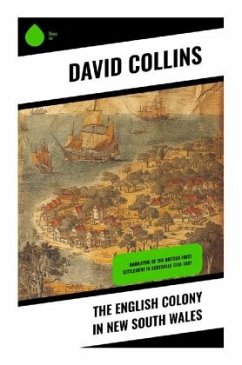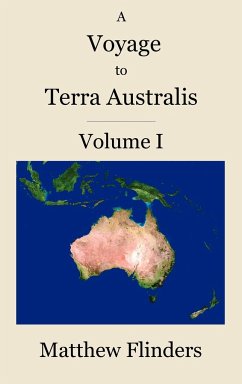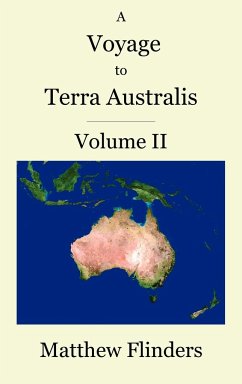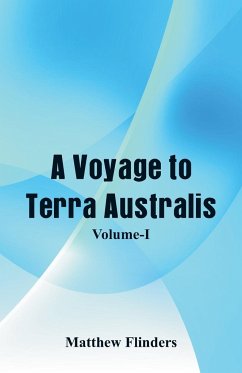
A Voyage to Terra Australis
Account of an Expedition in South Pacific 1801-1810
Versandkostenfrei!
Versandfertig in 6-10 Tagen
25,60 €
inkl. MwSt.

PAYBACK Punkte
0 °P sammeln!
In "A Voyage to Terra Australis," Matthew Flinders takes readers on a groundbreaking naval expedition through the uncharted waters of Australia at the turn of the 19th century. This meticulously detailed account encompasses not only observations of the diverse landscapes and teeming wildlife, but also the cultural interactions with Indigenous populations. Flinders' literary style combines the precision of a seasoned navigator with the lyrical qualities of a naturalist, creating a rich tapestry of experiences that bridge the realm of empirical observation and romantic prose, firmly positioning ...
In "A Voyage to Terra Australis," Matthew Flinders takes readers on a groundbreaking naval expedition through the uncharted waters of Australia at the turn of the 19th century. This meticulously detailed account encompasses not only observations of the diverse landscapes and teeming wildlife, but also the cultural interactions with Indigenous populations. Flinders' literary style combines the precision of a seasoned navigator with the lyrical qualities of a naturalist, creating a rich tapestry of experiences that bridge the realm of empirical observation and romantic prose, firmly positioning the work within the tradition of exploration literature that was burgeoning during this period. Flinders, an esteemed British navigator born in 1774, embarked on this voyage fueled by a passion for discovery and a commitment to documenting cartographic knowledge of Australia's coastlines. His experiences, marked by trial and adversity-including being imprisoned in Mauritius for several years-shaped his perspectives on colonial encounters and environmental appreciation, elements that are reflected in his writing. Flinders' contributions to the mapping of Australia significantly impacted naval exploration and helped lay the groundwork for future expeditions. This book is a must-read for historians, literary enthusiasts, and anyone captivated by the spirit of exploration. Flinders' evocative prose and meticulous observations not only broaden our understanding of Australia's geographical and cultural landscapes but also invite readers to consider the broader implications of exploration and colonialism in shaping modern identity.












